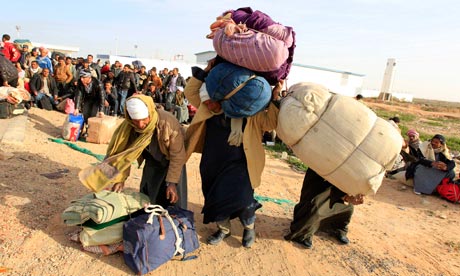By Dylan Takores
Impunity Watch Reporter, Middle East
RIYADH, Saudi Arabia – The Saudi Arabian Justice Ministry denied a report that an incarcerated man was sentenced to receive paralysis as punishment for stabbing and paralyzing his victim.

The Saudi Arabian justice system is well known for its strict adherence to Islamist sharia law. One form of punishment under the system is qesas, “the principle of Islamic law allowing victims analogous retribution for violent crimes.” In other words: an-eye-for-an-eye retaliation.
Judges in the Saudi system interpret the law and order sentences at their own discretion. Capital punishment, public flogging, and amputation are common forms of punishment. In the past, judges have ordered eye-gouging and tooth extraction as well.
Ali al-Khawaher, 24, was incarcerated for stabbing a man ten years ago, resulting in the victim’s paralysis. Reports surfaced that the Saudi court ordered al-Khawaher to have his spinal cord severed, rendering him paralyzed, as punishment for his crime unless he pays one million Saudi riyals (US $270,000) in compensation to the victim.
Ann Harrison of Amnesty International stated that paralysis as a means of punishment is tantamount to torture. She further condemned Saudi Arabia’s general lack of adherence to international legal obligations by failing to remove such punishments from its legal system. “That such a punishment may be implemented is utterly shocking, even in a context where flogging is frequently imposed as a punishment for some offenses, as happens in Saudi Arabia.”
Amnesty International frequently speaks out against the extreme forms of punishment carried out in Saudi Arabia and other countries that follow sharia law. In 2011, an Iranian court sentenced a man to be blinded after he threw acid in a woman’s face. Amnesty lobbied against the punishment, and his sentence was postponed and ultimately pardoned by the victim.
Britain’s Foreign Office joined Amnesty in its criticism of the alleged sentence. A spokesman described the sentence as “grotesque,” and argued that such a punishment is prohibited under international law.
However, despite the reports that incited the humanitarian uproar, the Saudi Arabian Justice Ministry denied the issuance any such sentence. A Ministry spokesman stated that the reports were “utterly incorrect.” The spokesman explained that the judge dismissed the demand for an-eye-for-an-eye retribution. Though the Ministry denied that al-Khawaher was sentenced to paralysis, the statement did not specify what punishment the judge did order.
Saudi Arabia and Iran are perhaps the most well known countries that apply strict sharia law, but Kuwait, Bahrain, Yemen, and the UAE contain elements of sharia law in their respective legal systems as well.
For further information, please see:
BBC – Saudi Arabia denies paralysis punishment – 9 April 2013
IBT – Saudi Arabia: Justice Ministry Denies Paralysis Sentence, Says Judge ‘Shied Away’ from Retribution Punishment – 9 April 2013
Time – Saudi Arabia Denied Report of Man Sentenced to be Surgically Paralyzed – 9 April 2013
Amnesty International – Saudi Arabia: News of paralysis sentence ‘outrageous’ – 2 April 2013



